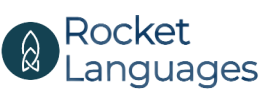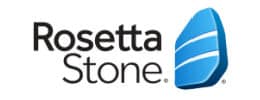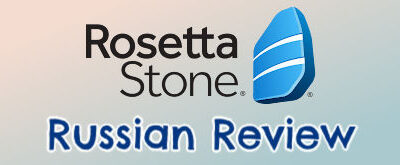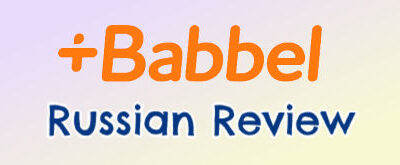Learning Japanese has become more accessible than ever, thanks to a variety of language programs and apps tailored to different learning styles and goals. Whether you’re a beginner looking for a solid foundation or an advanced learner aiming to refine your skills, there’s a program to suit your needs. In this article, we review and rank the best Japanese language programs and apps to help you find the perfect tool for your language journey.
Video Review: Best apps to learn Japanese
In the video above, Bianca from the Guide 2 Fluency team gives a full review of the best apps to learn Japanese. She covers how each programme teaches Japanese, key features, pros and cons, pricing, and whether each option is worth it compared to other Japanese learning apps. For more detail, be sure to continue reading our full written review below.
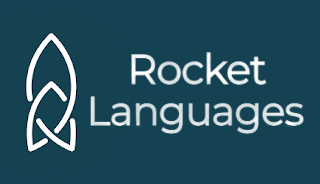
Sale: 60% OFF
Use Code: INSIGHT60
|
$180/lifetime |
Our top pick for learning Japanese is Rocket Languages. The company offers a comprehensive package with audio lessons, in-depth grammar guidance, and a variety of practice exercises, making it the best all-around app we’ve tested. |
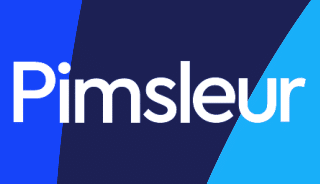
Free 7-Day Trial
Sign Up Today
|
$20/mo |
Pimsleur stands out with its own strengths, offering comprehensive audio lessons, a sleek interface, and intelligent practice drills, similar to Rocket Japanese but with a unique touch (and cheaper price tag). |
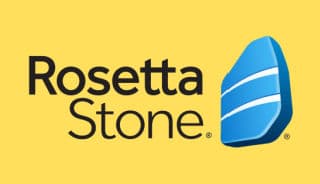
Discount: 60% OFF
Applied In Cart
|
$10-$15/mo |
This well-established language learning platform remains highly effective, especially for visual learners. Its immersive approach and use of imagery make it an ideal choice for those who prefer learning through visuals. |
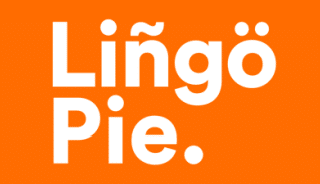
Sale: 70% OFF
Applied in Cart
|
$6-$12/mo |
This tool is an excellent addition to any language course once you’ve achieved a certain level of fluency. It blends language learning with watching premium Japanese TV shows and movies, enhancing your skills through real-world content. |
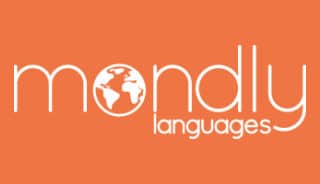
Sale: 50% OFF
Applied In Cart
|
$4-$10/mo |
Fun, game-like Japanese app that is a great fit for busy professionals, and budget-conscious learners. |
Editor’s Choice
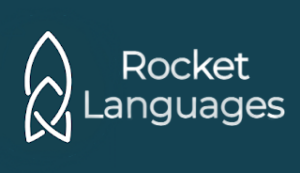
Rocket Languages
- Free Trial
- 14-Day Money Back Guarantee
Pros
- Lifetime plan available for less than $180 (after discount)
- Extremely comprehensive course that covers all aspects of the Japanese language
- In-depth audio lessons featuring fluent Japanese speakers
- Impressive speech recognition software
- Detailed grammar lessons and cultural explanations
Cons
- No monthly plans available
- Not the ideal Japanese program for visual learners
Editor’s Choice: Rocket Japanese
Rocket Japanese sets itself apart from other language apps by providing a well-rounded learning experience that focuses on both understanding and speaking the language (reading, writing, listening, and speaking).
Unlike many apps that feel more like a computer game or lack depth, Rocket Japanese offers a serious approach to language learning. In our experience, it delivers a more comprehensive and detailed learning journey than any other Japanese app we’ve tried.
Interact With Fluent Speakers
A key feature of Rocket Languages is its interactive audio lessons, guided by an English-speaking host who navigates a genuine conversation between native Japanese speakers. This practical, scenario-based method is highly effective for improving both listening and speaking skills.
Unlike most Japanese language apps, except perhaps Pimsleur, Rocket provides an experience that closely mirrors real-life dialogue. These audio lessons are central to Rocket’s approach, distinguishing it from competitors like Duolingo, which tend to focus on short, repetitive exercises. Instead, Rocket emphasizes learning through meaningful, contextual conversations.
Comprehensive Verbal Practice
Rocket Languages enhances its audio lessons with a variety of practice exercises that cover all essential language skills: reading, writing, listening, and speaking. One notable feature is the simulated conversations, where you can practice as one of the Japanese native speakers from the audio lessons described above, providing a hands-on way to improve fluency.
Additionally, Rocket’s speech recognition software, which uses Google’s Web Speech API, evaluates your pronunciation in real-time, giving you feedback and helping you refine your Japanese speaking skills.
Detailed Grammar Explanations
Finally, it’s important to note that Rocket Languages places a strong emphasis on grammar instruction throughout its courses. While grammar may not be the most exciting aspect of language learning, it is essential—especially in a language as complex as Japanese.
Rocket’s main audio lessons, along with their additional “language & culture” modules, are packed with useful tips and explanations to help learners grasp and apply various Japanese grammar rules.
Understanding Japanese grammar is crucial for language learners because it forms the foundation of how sentences are structured and meaning is conveyed. Japanese has unique grammatical rules and structures that are very different from English, so mastering these rules is key to achieving fluency and being able to speak and understand the language accurately.
Bottom Line
Rocket Languages is a must-have resource for serious Japanese learners, providing a mix of interactive audio lessons, diverse practice exercises to reinforce learning, and in-depth grammar guidance. This balanced approach sets it apart from other Japanese language programs. For anyone determined to become proficient in Japanese, Rocket Languages offers excellent value and easily grabs our top choice.
👉 Read our full Rocket Japanese review
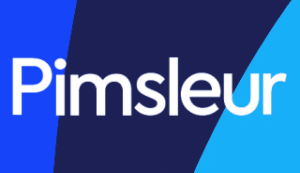
Pimsleur
- Monthly Subscription Plans
- Free Trial
Pros
- Subscription plan can be split among multiple users
- Detailed audio lessons similar to Rocket Japanese
- Voice Coach tool provides feedback during pronunciation drills
- Diverse mix of reinforcement drills
- Impressive digital interface and mobile app
Cons
- Lessons are lengthy
- Limited use of images, graphics, and video
Best For Auditory Learners: Pimsleur Japanese
If you’re looking for an alternative to Rocket Japanese but with a similar approach, Pimsleur could be a fantastic choice. It provides an audio-centric learning experience, much like Rocket, but at a more affordable price. While Pimsleur’s lessons often have a more formal feel, they offer detailed and accurate instruction, which we found to be highly effective.
Audio-Based Learning Method
Pimsleur excels with its audio-focused lessons that are specifically crafted to improve your listening and speaking skills. The program is carefully organized, with each lesson progressively building on the previous one, becoming more challenging as you advance.
Unlike Rocket Japanese, which emphasizes a more casual, conversational style, Pimsleur takes a more formal and academic approach. This method may initially appear less dynamic, but it offers a structured, step-by-step process that can be especially beneficial for learners who prefer a methodical approach.
Audio lessons are an effective method for learning Japanese because they immerse learners in the natural sounds and rhythms of the language. This approach helps develop an ear for the correct pronunciation and intonation, which is crucial for speaking Japanese accurately.
Additionally, listening to native speakers enhances understanding of real-life conversations and cultural nuances, making audio lessons a powerful tool for building both comprehension and communication skills.
Pronunciation Practice
Pimsleur has introduced a Voice Coach feature that provides real-time feedback on pronunciation, a much-needed enhancement that makes learning more effective.
This tool is user-friendly, highly accurate, and stands out compared to similar features in other language programs. After evaluating various language programs, we believe Pimsleur’s speech tool is among the top choices.
Top-Notch Mobile App
We strongly recommend Pimsleur’s digital platform and mobile app. In terms of user experience, it stands out as one of the best in the language learning industry. The app has a sleek and modern interface, runs seamlessly, and offers an easy-to-navigate design.
Additionally, the app includes a special driving mode for its audio lessons, enabling you to continue learning even while driving. This feature is particularly beneficial for those who spend a lot of time commuting.
Bottom Line
Pimsleur can be seen as a counterpart to Rocket Japanese, employing a similar teaching method but with distinct features. Pimsleur stands out with its adaptable monthly subscription options, a unique driving mode that operates like a podcast, and a more modern digital experience.
👉 Read our full Pimsleur Japanese review
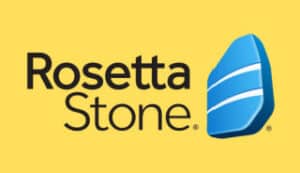
Rosetta Stone
- Multiple Subscription Options
- Money Back Guarantee
Pros
- Affordable subscription plans
- Ideal Japanese course for visual learners
- Immersive learning method that is effective
- TruAccent speech technology that is quick and accurate
- Helpful bonus resources
Cons
- Lessons can become dull at times
- Wish verbal practice drills were more robust
Best For Japanese Immersion: Rosetta Stone
Rosetta Stone employs a bold and immersive approach to language learning by introducing you to Japanese from the outset. While this method might seem overwhelming at first, it is highly beneficial for reaching fluency.
Immersive Learning Approach
Rosetta Stone is built around the principle of immersion, which significantly boosts language acquisition. The app surrounds you with Japanese through images and real-life scenarios, encouraging you to link these visuals directly with Japanese words and phrases.
This technique avoids relying on English translations and explanations, prompting you to start thinking in Japanese from the start. Immersion is crucial for fluency as it allows you to adapt to the language in a natural and intuitive manner. Engaging consistently with Japanese in context helps build a solid foundation and accelerates your path to conversational proficiency.
Visual-Heavy Lessons
Rosetta Stone emphasizes visual learning, setting it apart from many other language apps. The platform incorporates images throughout its lessons to reinforce vocabulary and concepts.
This visual approach is particularly beneficial for learners who absorb information better through pictures, aiding in the retention and recall of words and phrases. By constantly integrating visual cues, Rosetta Stone improves comprehension and helps learners apply new knowledge in practical situations.
Bottom Line
Rosetta Stone is an excellent choice for those who learn best through visual stimuli and prefer an immersive method of learning Japanese. The app’s use of visual cues and real-life contexts enhances the learning experience, making it especially suited for visual learners.
Although the absence of English translations may initially be challenging, this approach ultimately promotes a deeper understanding and faster mastery of the language. Through full immersion in Japanese, Rosetta Stone helps learners achieve fluency more naturally and effectively.
👉 Read our full Rosetta Stone Japanese review
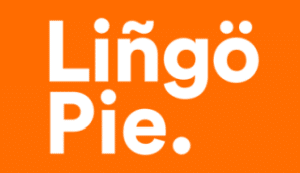
Lingopie
- Multiple Subscription Options
- Cancel Anytime
Pros
- Low cost subscription plans (as low as $6/mo)
- Unique learning method based on watching tv shows and movies
- Impressive video library (premium content)
- Variety of tools to aid in the learning process
- Detailed grammar explanations
Cons
- No clear-cut lesson plan or progression
- Likely need a baseline knowledge of Japanese to start
Best Video-Based Program: Lingopie Japanese
Lingopie provides a unique immersion experience by making TV shows and movies the central focus of its language learning approach. Unlike traditional methods, the entire program is built around engaging with media content.
While it doesn’t follow a conventional structured curriculum, Lingopie offers a cost-effective way to boost your language skills through enjoyable and authentic content.
Extensive Video Library
Lingopie’s approach centers on using real Japanese-language TV shows and films as primary learning resources. This method immerses you in everyday language use, greatly speeding up fluency and making learning more enjoyable.
The platform boasts an extensive library, with thousands of hours of content available through its Netflix integration and other licensed materials. Popular titles include Three Dads, Swimming In The Dark, and Insane Love. This variety provides both practical language practice and cultural insights, enriching your learning experience.
Useful Learning Tools
Lingopie enhances its language learning process with a variety of supportive tools beyond just providing subtitles. The app features video-based flashcards, comprehensive grammar explanations, and adjustable playback speeds. These tools allow for a more interactive and thorough engagement with the content, improving comprehension and retention.
Notably, the ability to slow playback speed to 0.75x aids in understanding complex phrases, while the auto-generated flashcards help reinforce vocabulary. Together, these features create a flexible and effective learning environment, making Lingopie a valuable addition to your language study routine.
Bottom Line
Lingopie is ideal for those looking to complement their language studies with additional resources like Rosetta Stone or Pimsleur. It’s also a great way to expand your vocabulary if you already have a solid grounding in Japanese.
👉 Read how Lingopie compares to FluentU
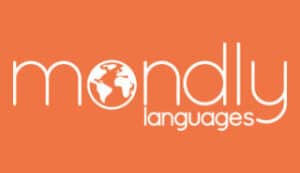
Mondly
- Multiple Subscription Options
- AR & VR Apps Available
Pros
- Extremely affordable (as low as $4/mo)
- Quick and engaging lessons
- Fun, game-like practice drills and exercises
- Unique AR & VR apps available
- End of lesson review sessions help with material retention
Cons
- Grammar instruction is limited
- Verbal practice is somewhat elementary
Best For Gamification: Mondly Japanese
For those seeking an affordable yet fun language app to learn Japanese, Mondly is a great option. Ultimately, our team prefers Mondly over other game-like apps such as Duolingo.
Short, Engaging Lesson Format
An often overlooked factor in language learning is the length of lessons. While the Rocket and Pimsleur lessons typically last around 45 minutes to an hour, Mondly’s can be completed in about 10 minutes. For people with tight schedules who can only dedicate a small amount of time each day to study, Mondly’s shorter lessons may be more appealing.
Shorter lessons not only fit more easily into a busy routine but can also help maintain focus and prevent burnout. This is particularly useful when learning a complex language like Japanese, as breaking up the material into smaller, more manageable chunks can make the process less overwhelming and encourage regular practice, which is key to language retention.
Unique AR & VR Apps
Mondly sets itself apart from competitors with its use of virtual reality (VR) and augmented reality (AR) technology. Their VR app immerses users in simulated real-world scenarios, such as ordering food or speaking to hotel staff, offering an interactive way to practice conversation skills. Though it costs $5, the requirement of an Oculus headset might be a drawback for some.
Alternatively, Mondly’s AR app, free with a Premium account, brings lessons to life by scanning your surroundings and projecting a CGI teacher and animations directly into your space. This allows learners to engage with visual prompts and practice vocabulary in an interactive environment.
These features are a refreshing supplement to traditional lessons and help enhance pronunciation and conversational skills. By incorporating fun, interactive technology, Mondly makes the learning process enjoyable, which is particularly important when tackling challenging languages like Japanese. Adding a sense of enjoyment helps sustain motivation and encourages consistent practice, both of which are crucial for language acquisition.
Bottom Line
Mondly is an excellent choice for learning Japanese, offering engaging, tech-driven tools like VR and AR to enhance immersion and make lessons enjoyable. Its shorter lesson format also caters to busy learners, making it easy to fit consistent practice into a hectic schedule.

